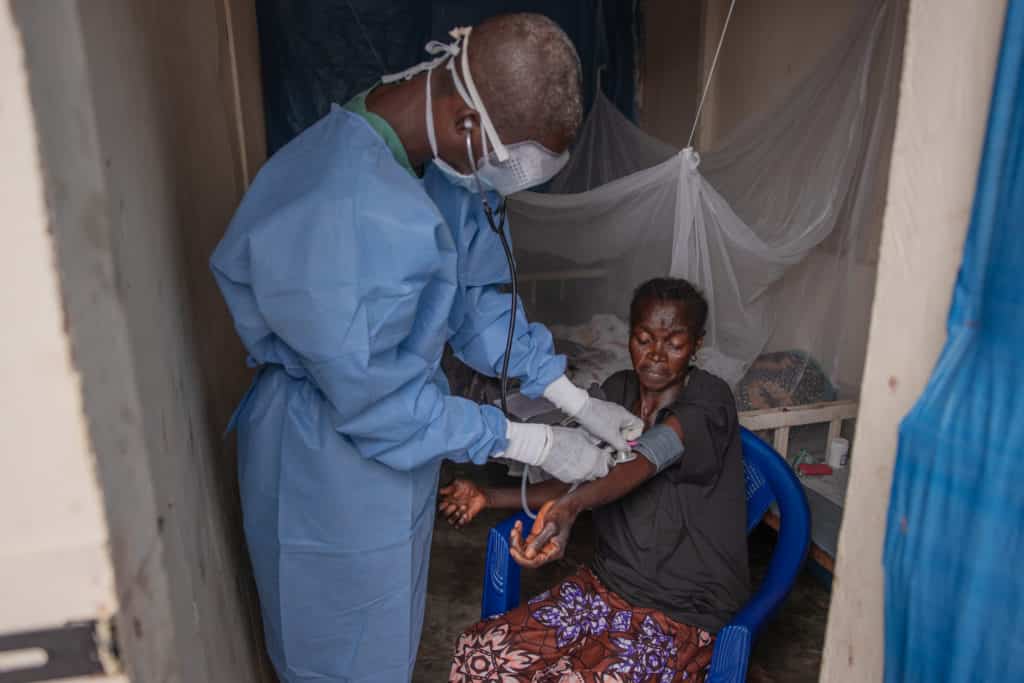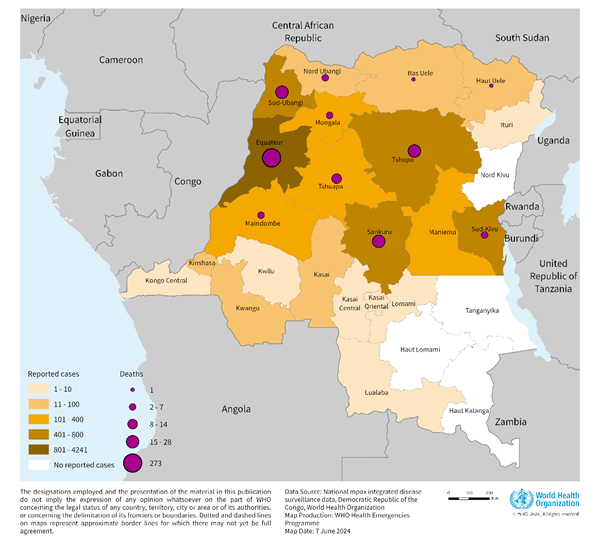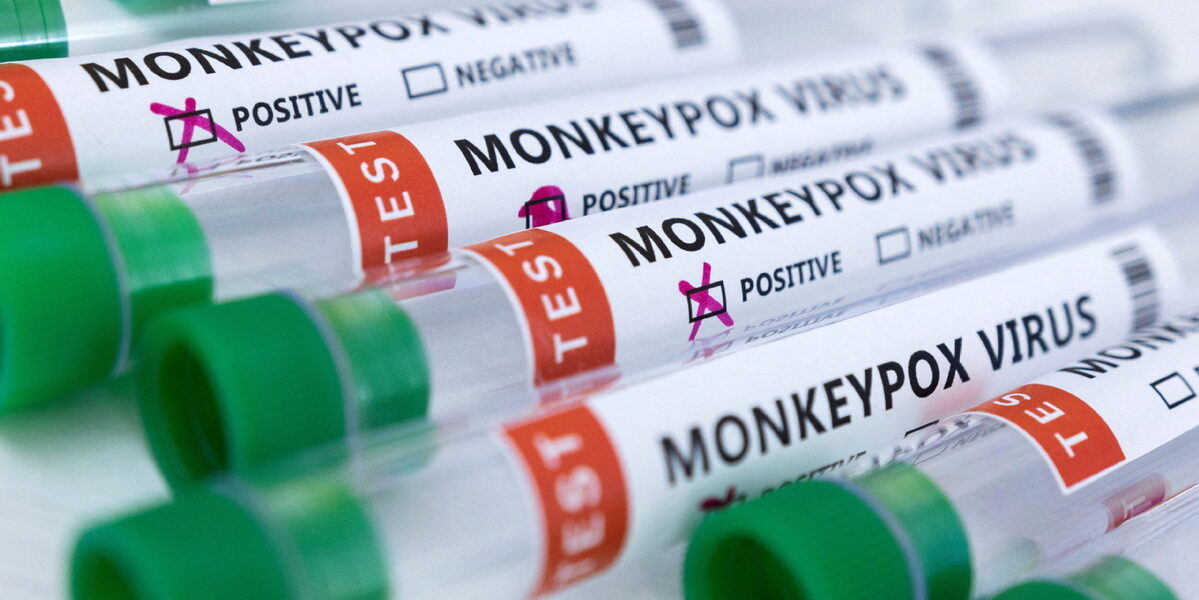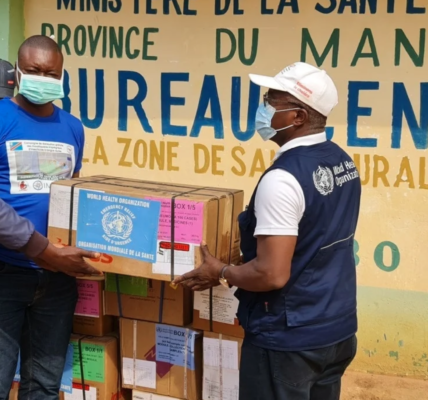WHO worries over new DRC MPOX strain, confidence in South African containment

A new virulent strain of MPOX identified in the Democratic Republic of the Congo poses a risk of spreading to other countries, according to the technical lead at the World Health Organisation, Dr Rosamund Lewis.
Dr Lewis told National Security News in an interview that the less dangerous form of the virus has reached 117 countries with 97,000 confirmed cases, and “there is no reason to think that the new strain can’t also spread similarly.”
But, while Dr Lewis was concerned about the new strain in the DRC, she expressed confidence in South Africa’s capacity to control the outbreak, where three people have died of MPOX.
A spokesperson from South Africa’s Health Ministry confirmed that 22 cases of MPOX have been identified in the country, with 16 cases having recovered and three considered as ‘active cases.’ Additionally, a student from Hammanskraal, who was suspected to have MPOX, has tested negative for the disease.
“Two years after the outbreak of the Clade II monkeypox virus, we still have 26 countries reporting just last month and over 600 confirmed cases globally,” she said. Dr Lewis noted that in the DRC, there are two distinct outbreaks of MPOX happening simultaneously.
“One is in the traditional endemic areas, where many more cases are being reported than in the past. These mostly affect children, and the risk is higher for them, as a greater proportion of children will succumb to severe illness and can also die more easily from MPOX than adults. That situation is in the endemic parts of the country.”
The new strain of the monkeypox virus, the Clade 1b variant, she said, has been found in the eastern part of the country in the South and North Kivu provinces. For the moment, she said it is contained to that area. The types of contact reported by cases include sexual contact, non-sexual direct contact, as well as household and healthcare facility contact.

“Essentially, you can have lesions, virus in your mouth, and when you’re talking, that virus can be transmitted from your mouth. When you’re in very close contact with someone, you can also share the virus that way. It can also be shared through bedding sheets, needles, and through sexual contact, which because it’s mucosal contact, it can transmit easily that way as well,” Dr Lewis said.
Infections with the Clade 1b variant are much more severe than previous variants and symptoms last significantly longer. Of particular concern are pregnant women. If a woman contracts MPOX during pregnancy, it can lead to severe illness for both the mother and the foetus, potentially resulting in pregnancy loss, Dr Lewis said.
The original Clade 1a strain of MPOX has been circulating in all regions of the world for the past two years, and there have been continuous outbreaks. But wealthier nations have proved to be effective in preventing the spread of the virus. There is, however, concern that it may spread among populations experiencing high levels of poverty.
Vaccines and treatment
Vaccines have been approved by regulatory authorities in Europe, North America, and some African countries,” Dr Lewis said. “Nigeria has approved one of the vaccines, while the Democratic Republic of the Congo has issued emergency authorisation for two different types of MPOX vaccines.”
“So, the vaccines have only been available until now in countries around the world that were able to procure them themselves. Now we’re putting in place mechanisms to support the responses in the African setting,” she said.
South Africa is one of the few countries that have accessed a treatment called Tecovirimat, an antiviral agent specifically for pox viruses. “Most of the cases in South Africa so far have been able to access that specific medication,” Dr Lewis noted.
“We have every confidence that South Africa will be able to stop this outbreak. All the different measures are being put in place to do that. Health information, surveillance, contact tracing, working with affected communities, working towards introducing vaccination in the country, and offering appropriate treatment and medical care as needed for each individual case,” she said.
The treatments and vaccines, Dr Lewis said, are not cost-free. “In fact, they’re quite expensive,” she said. The WHO is supporting South Africa to access the treatments for free, and the Democratic Republic of the Congo will also shortly be accessing the vaccines free of charge.
“These are emergency response mechanisms. It’s not something that can be sustained necessarily for many years. But in order to stop an outbreak in an emergency setting, an emergency phase, WHO makes these resources available as much as possible or helps to coordinate access to treatments and vaccines.”
Potential for a pandemic?
MPOX is now in 117 countries with 97,000 confirmed cases in the WHO’s database. This excludes, according to Dr Lewis, the cases that never went for a laboratory test or the countries where it is not a notifiable disease. “Some countries don’t report MPOX, which is unfortunate,” she said.
The WHO emphasised that MPOX is not something that puts everyone at risk.
“In South Africa, at the moment, it’s transmitting sexually. It has entered certain sexual networks, which at the moment are men who have sex with men. This is 90% of the cases so far.”
WHO’s experience in the global outbreak is that the virus has remained in those networks. It has not really put very many people at risk outside of that, except in household settings where there is close contact with people in the household.
“That’s quite different from what is happening in the Democratic Republic of Congo.”
The difference in South Africa, she said, is that the virus has found not only the sexual networks where it is transmitting but also “the most vulnerable who have advanced HIV disease and don’t have access to antiretroviral therapy or didn’t even know that they had HIV.”
“So, when you discover HIV by virtue of having MPOX, then you’re already quite ill, or you have the risk of becoming quite ill,” she warned. “That does not put everybody at risk, but it does mean that it’s an infectious disease and people need to be aware of it,” she said.


























































































































































































































































































